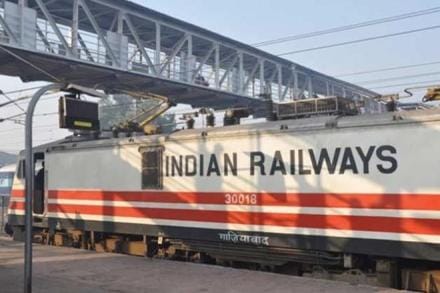The Railway Development Authority, approved by the Cabinet on Wednesday and likely to be constituted by the end of 2017, will lack statutory powers, at least initially. “The RDA may not be formed by August and is more likely by December. Legislation to accord it may not be tabled in Parliament this year; an executive order will give it the requisite powers in the interim,” said a Railway Board member.
The National Transport Development Policy Committee (NTDPC) Report of 2014 proposed a Railway Tariff Authority with a mandate to become the overall regulator of the sector. Later, Bibek Debroy Committee report had also recommended a regulator with overarching functions. However, as per the current order, the RDA will remain an advisory body.
Earlier, there were reports that the railways may set up RDA through a legislation as advised by the Niti Aayog in order to keep the body independent.
However, in its current advisory structure it will not have regulatory powers. “It will make recommendations for budgets or may be on a quarterly basis. A process will evolve over a period of time,” said the Board member.
Also Watch:
As per a government release on Wednesday, the RDA will have four key roles—tariff determination, ensuring level playing field for investors in the carrier, setting efficiency and performance standards and information dissemination. It is not immediately clear whether the RDA will eventually lead to letting private train operators. The idea mooted was that while track infrastructure will remain with then government, IR and private operators could compete as train operators by paying track access charges, which will be determined by the regulator.
The ministry of railways had in January 2016 prepared a concept paper on RDA and invited comments from the public. Earlier, railway minister Suresh Prabhu in his rail budget speech for 2015-16 had said for “orderly development of infrastructure services, enabling competition and protection of customer interest, it is important to have a regulation mechanism independent of the service provider”. However, the idea of a tariff authority for railways was first mooted in 2012 Budget by then-railway minister Dinesh Trivedi.
However, the RDA was envisaged to have regulatory powers to bring in transparency and professionalism into the behemoth which has been struggling to increase its revenue from both passenger and freight segments, and even the volumes have been falling.
According to a person close to the development who requested not be named, lack of regulatory power may result in less investment by private players. “Investment from private sector may not come given RDA will not be an appellate body,” said the person. The Indian Railways plans to pump in Rs8.5 lakh crore in five years starting 2015.
The authority will have a chairman and three other members. According to the Board member, they will not necessarily be from within the railways and may be outsiders too. “While chairman will be a secretary level post, members will be additional secretary level people,” the Board member added. The RDA will also be allowed to engage outside experts.
